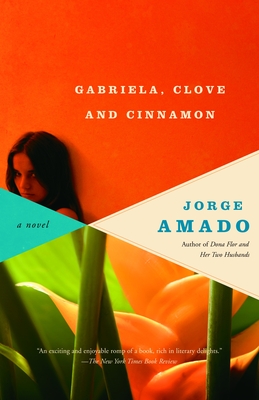
At times,
My Dream of You resembles nothing so much as Philip Larkin's
"This Be the Verse" born again as a novel and dolloped with sentimentality. If only the protagonist's parents had been sufficiently warm and involved in the lives of their children there might be no story at all.
Kathleen de Burca is a single, middle-aged Irish expatriate who has organized her life in response to the pain of her youth. She has no real home, few friends. A travel writer, she has shut herself off from the world even as she visits far-flung locales, writing invariably cheerful and witty missives from places that are often anything but. Then her closest friend dies suddenly and this new heartbreak, coupled with the encroachments of age, seems to shake something loose in Kathleen. In short order, she leaves her job and the basement flat she's lived in for decades and heads back to Ireland to research a book.
O'Faolain interweaves the story of Kathleen's return to Ireland with that of the book she begins to write while there--an account of an affair between an Irish servant and the wife of an English landlord during the potato famine--to mostly good effect. What Kathleen wants to find in the events of the past is the kind of idealized passion she has always sought and felt was so absent in her life. History, though, is never so convenient and the story grows steadily more complicated.
I feel like in order to really enjoy this novel (and I find this is often the case with books written in the first person) I would have needed to care about the main character. But I couldn't quite manage to do so. It's not that Kathleen, intelligent and honest although only intermittently capable of self-examination, not unkind though thoughtless and selfish, is somehow beyond the pale. She's not a character who ought to repulse one's sympathy. And yet I found it impossible to summon up much in the way of fellow-feeling. For me, her pain was too often rendered in shorthand: Her father was absent and dictatorial. Her mother, always pregnant, weak, and ill, had little to offer. And this, in the world of the novel, explains everything about Kathleen.
Reading
My Dream of You, I began to think that perhaps my experiences, age, and preoccupations are simply too far from hers. These gaps, however, are all things that novelists can overcome; the opportunity to step outside oneself is one of the great joys of reading. I think the problem is that, for Nuala O'Faolain, it seems like the most natural thing in the world that Kathleen would end up the way she does. There's no need to interrogate the subject. So it isn't until the end of the novel that O'Faolain actually made me understand the source of Kathleen's anger and pain. The historical background the author provides is focused on the potato famine--which I actually knew quite a bit about already--and not the Ireland of the mid-20th century which I know virtually nothing about. And that's fine. I'm sure many other readers didn't need more information. But it made me feel that I, a generation or two younger, from a different country and economic background, wasn't the audience for the novel.
Which is a shame, because there was a lot about the book that I liked, starting with writing that is decidedly unfussy and yet vivid, particularly in its evocations of setting and descriptions of nature:
I knew this Atlantic where it broke on western coasts, all the way down to the curve of the earth. I could picture ten or twelve places I’d been where this same ocean met land, from a sturdy village among artichoke fields in Brittany, to the baking sand dunes of Namibia. I’d watched the fog roll in from it every day when I was writing a piece about golf courses in Portugal. I’d lived a few feet from it in a run-down tourist camp on a beach in Senegal, where the crabs clacked around the legs of my bed all night. But I had never before been on the west coast of an Atlantic island, at the turn of spring into earliest summer—never before seen such a wide slope of small fields, their grass patched with the brown of weeds and rushes, fields of a muted and glowing green that lulled the eye, that then was shocked by the huge vista of the turbulent, turquoise sea beyond.
Kathleen sounds like a real person and, more than that, like a travel writer. Observant and occasionally prosaic, she has a knack for picking out a few small details that create a picture. Even if you don't like her, she's a solid, believable character. And as her protagonist changes, coming to terms with both her present and past, O'Faolain explores relationships between women in a way that is genuinely touching, if secondary to the story. The other lives Kathleen could have lived are right there in front of her in the form of her sister-in-law, an elderly librarian helping her with research, and the daughter of an innkeeper, among others.
But if you don't care much about her emotional journey the story begins to feel a bit leaden and repetitive. There's simply not all that much going on and Kathleen spends a lot of time spinning her wheels. Eventually the reader, too, feels stuck in neutral.


